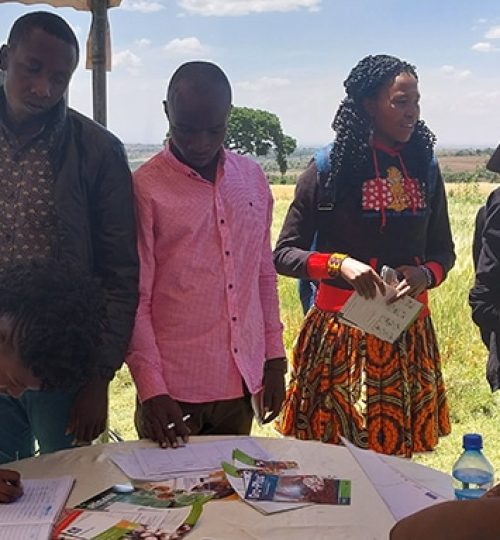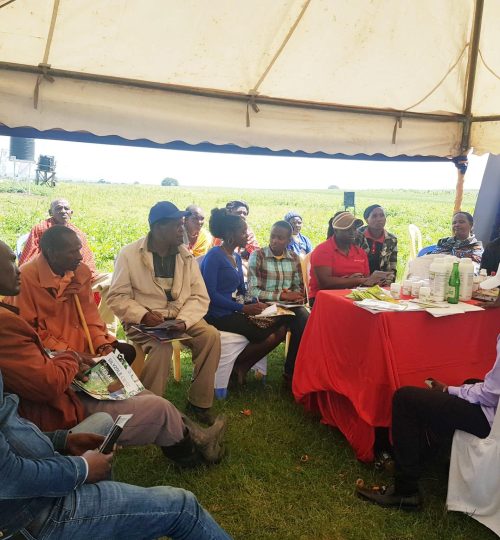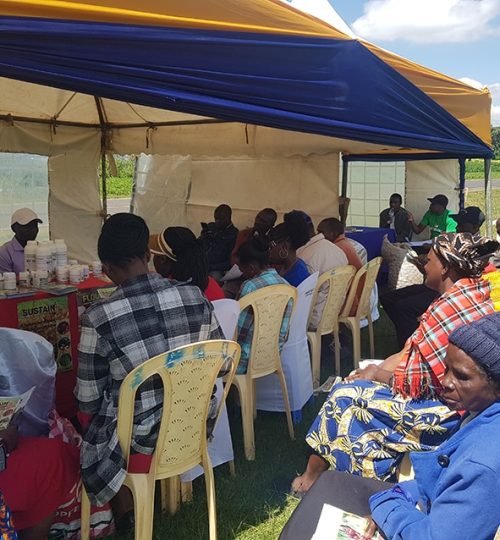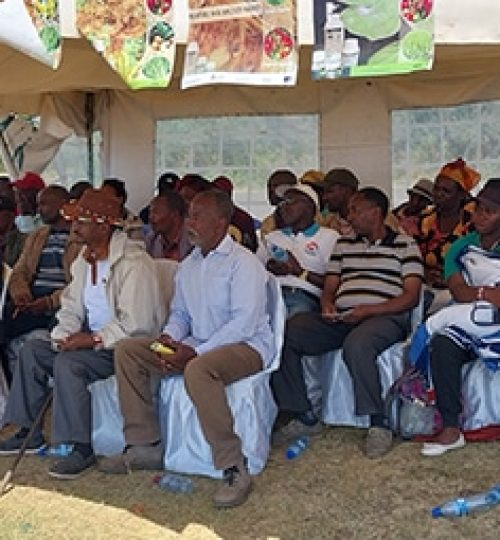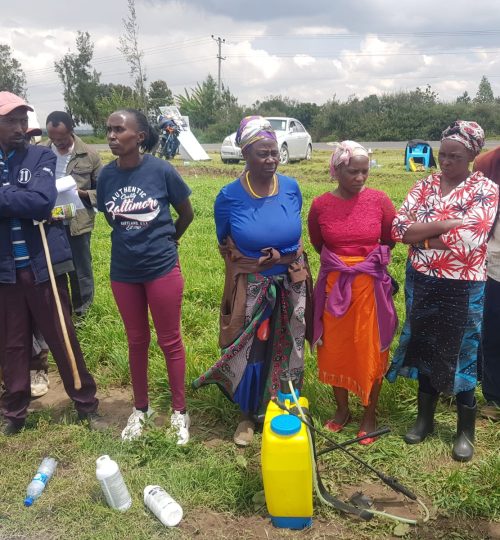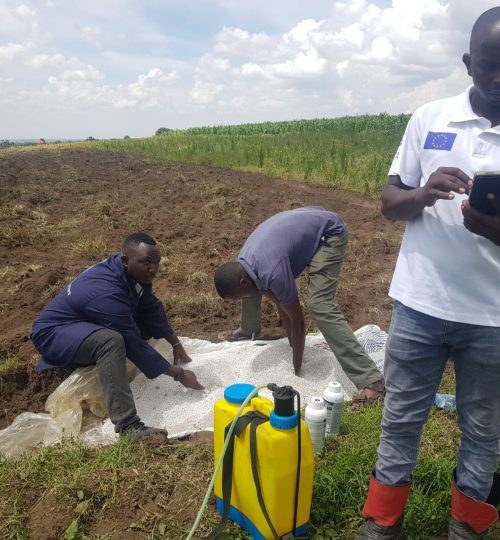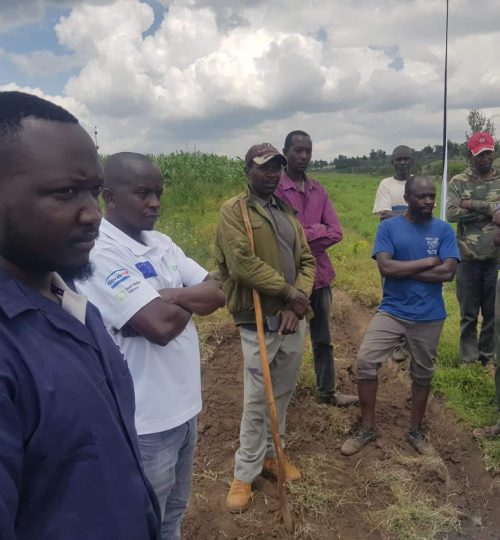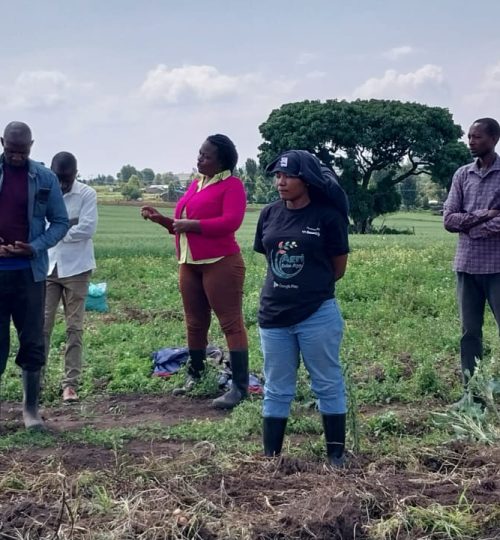Importance of agricultural
mechanization &
Digitization
“The combination of digital technology and human creativity in deploying it will revolutionize life for Africa’s farmers by overcoming isolation, speeding up change, and taking success to scale.”
— Kofi Annan, Sir Gordon Conway and Sam Dryden
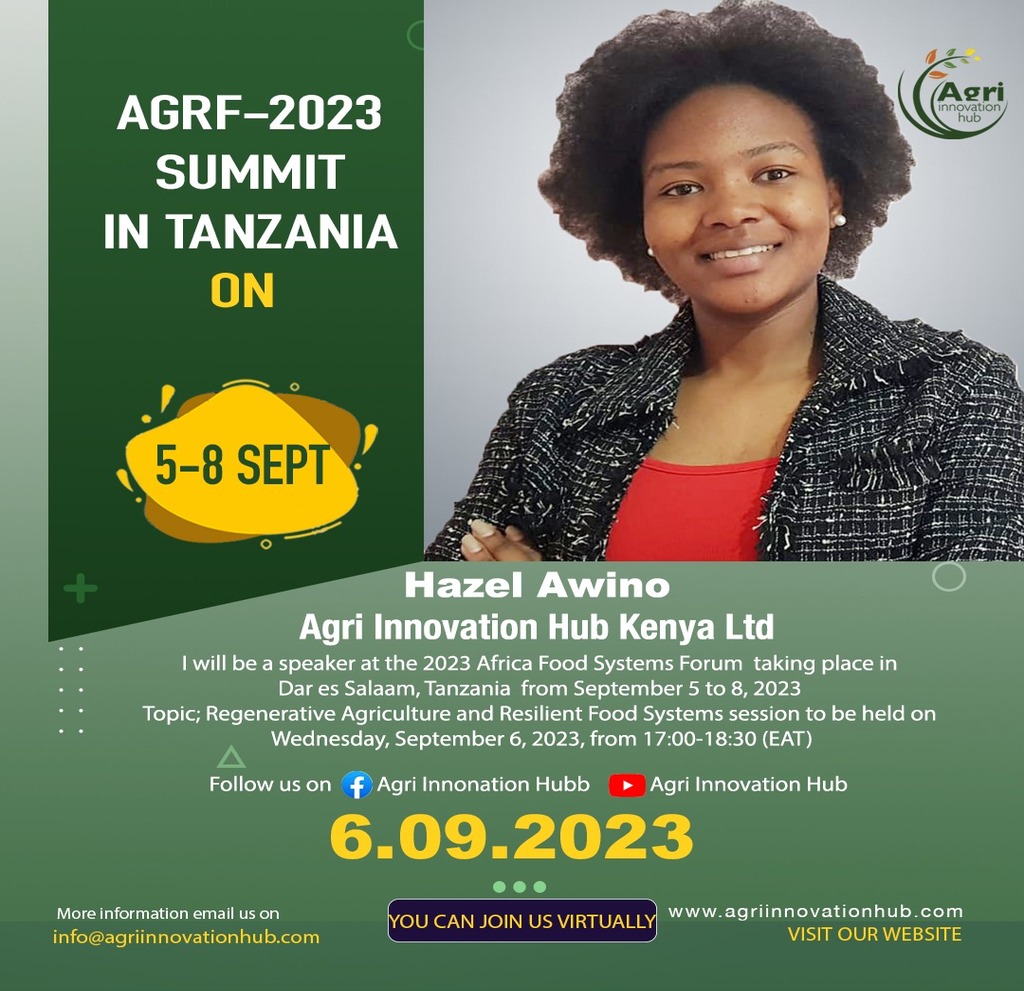
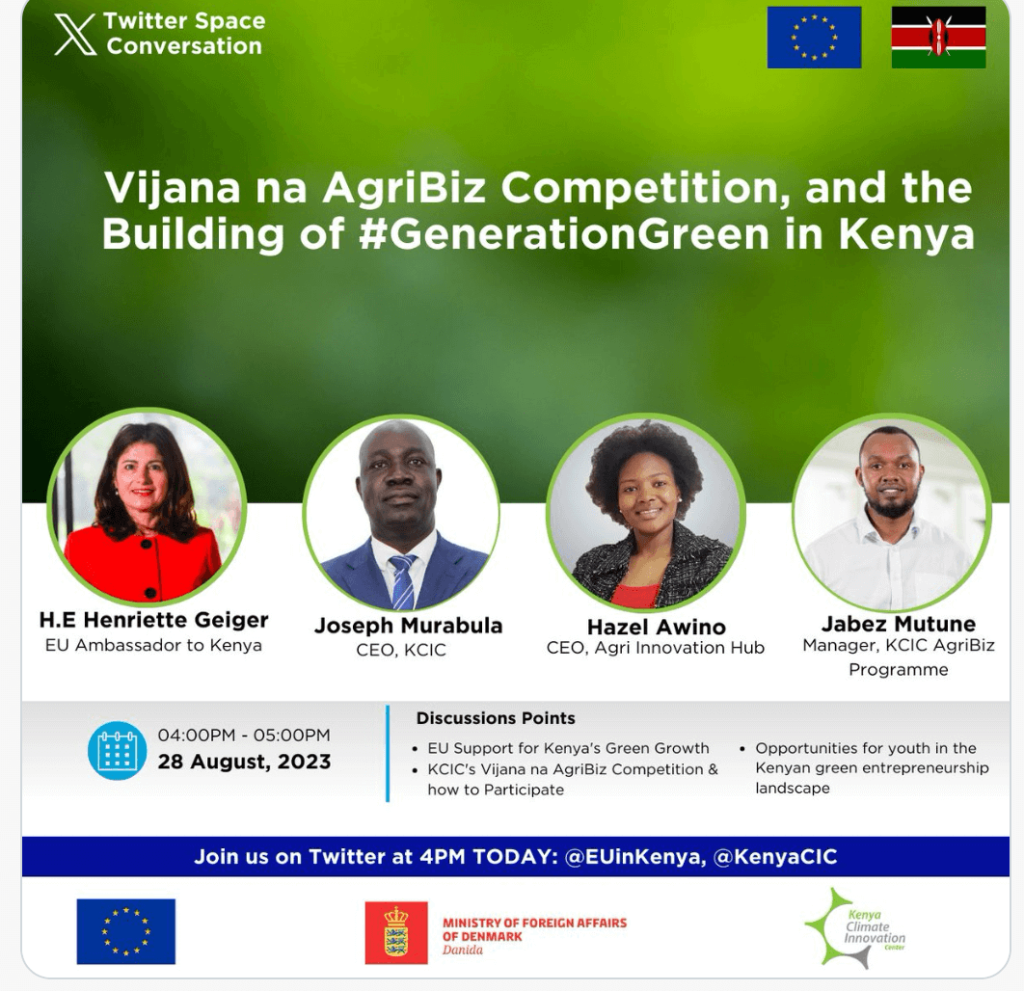
Our Journey
Agri Innovation Hub was founded in 2019 by Hazel Awino, a 4th year student at Kenyatta University with the aim of highlighting agricultural innovations done by the youth but never see the light of day. As time went by we realized that the potato value chain is one of the largest with over 800,000 farmers but with no structure so we thought of streamlining the potato value chain which has remained unstructured for a long time to the disadvantage of the farmer. This prompted her to came up with an App that provides solution by bringing all stakeholders together. This include farmers, soil testers, farm input providers, agronomists, weather forecasters, farm machinery providers, financiers, transporters, potato bulk buyers etc. The App, Agri Hub Soko has won various awards including Code Hack 2020 sponsored by Pwani Tekno Galz and Vijana Na Agribiz by Kenya Climate Innovation Center (KCIC).
How the App, Agri Soko works
First and foremost the farmer is registered onto the App by agents thereafter the farmer downloads the application on their phone. Through the app the farmers are able to access readily available extension services i.e. agronomical support, affordable farm inputs, financial support, reliable and sustainable markets. In trying to meet the high demand on quality and quantity of potatoes, Agri Innovation Hub organized a successful farmers’ field day on 23rd June 2022 at Eor’enk-tok, near Kisiriri in Narok County. We discovered that field days are most successful outreach methods and have become activities to showcase innovations to farmers for adaptation. We were honored to have partnered with Kenya Climate Innovation Center (KCIC) and National Potato Council of Kenya (NPCK) on this day.

Agri Innovation Hub’s Chairman Mr. Godwin Onduru (left), Grace Awuor, Head of Operations (second left),
Agricultural Food Authority (AFA) Director General Mr. Calistus Efuko and Chief Executive Officer Hazel Awino (right) at AFA Offices in Nairobi
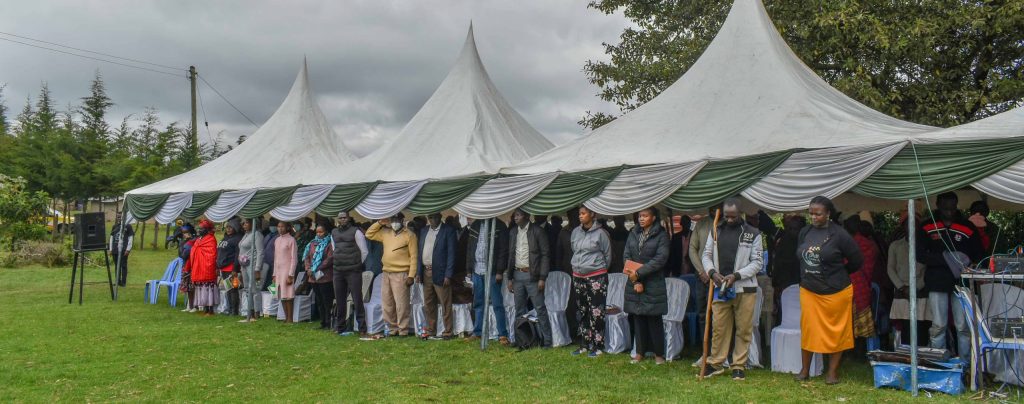
Guests, exhibitors and farmers during launch of the Agri Soko App and farmers field day
Agri Innovation Hub Chairman Mr. Onduru, CEo Hazel Awino and Agricultural Food Authority (AFA) Director General Mr. Calistus Efuko at their Officer in Nairobi
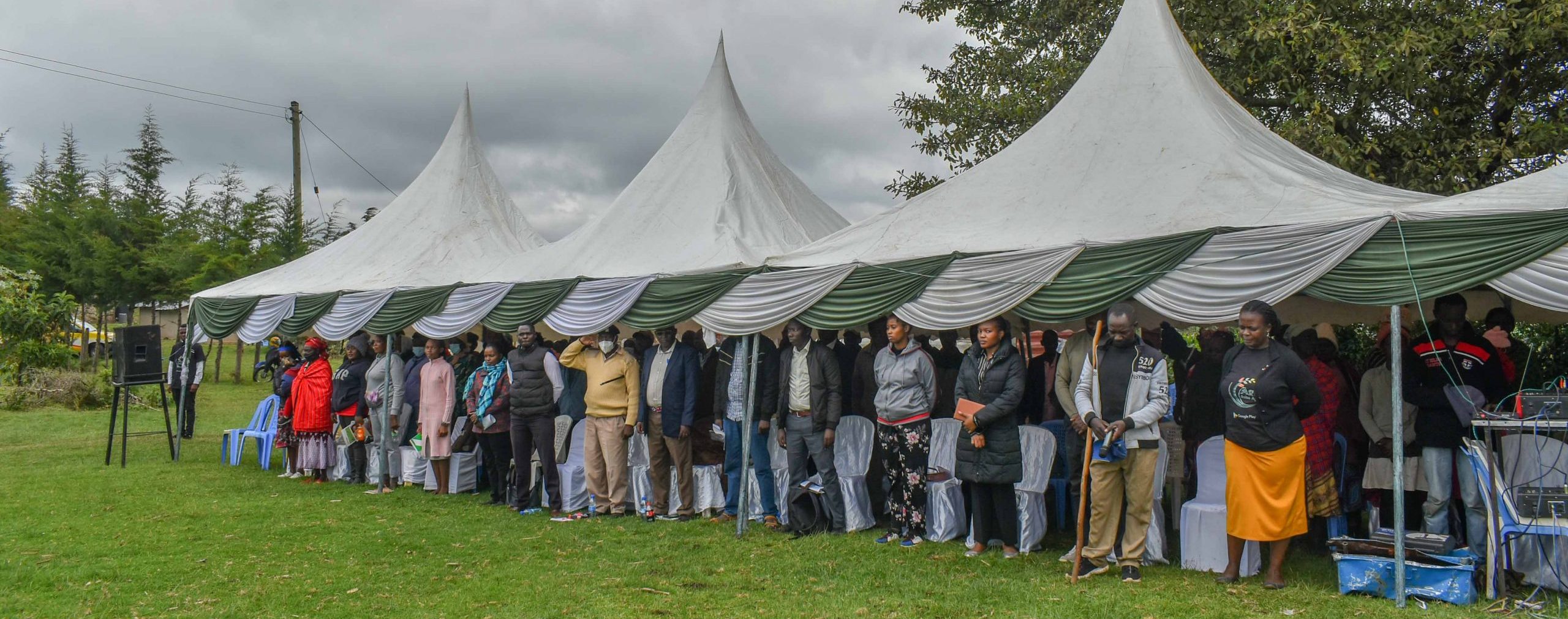
“Your agricultural production and commodity value chain information is unique, easy to follow. My recommendation is that you keep the good work up and you are good to go places.”

John Ayisi Jatango
Director of Agriculture at Ministry of Food and Agriculture (Ghana)

During the occasion, the App, Agri Hub Soko was launched with over 350 farmers given an opportunity to have a feel on how the App works. Our farmers need user friendly, easy to learn innovation as a tool for them to adapt and grow. The farmers were also educated on good and new farming practices. It is worth noting that the objectives of the field day were met by bringing the stakeholders in the potato industry together. The exhibitors demonstrated and showcased their products and farmers learnt a lot. In addition, the interaction between farming groups, individual farmers and exhibitors is proof of willingness to learn and a show of interest which culminated to exchange of contacts leading to sales
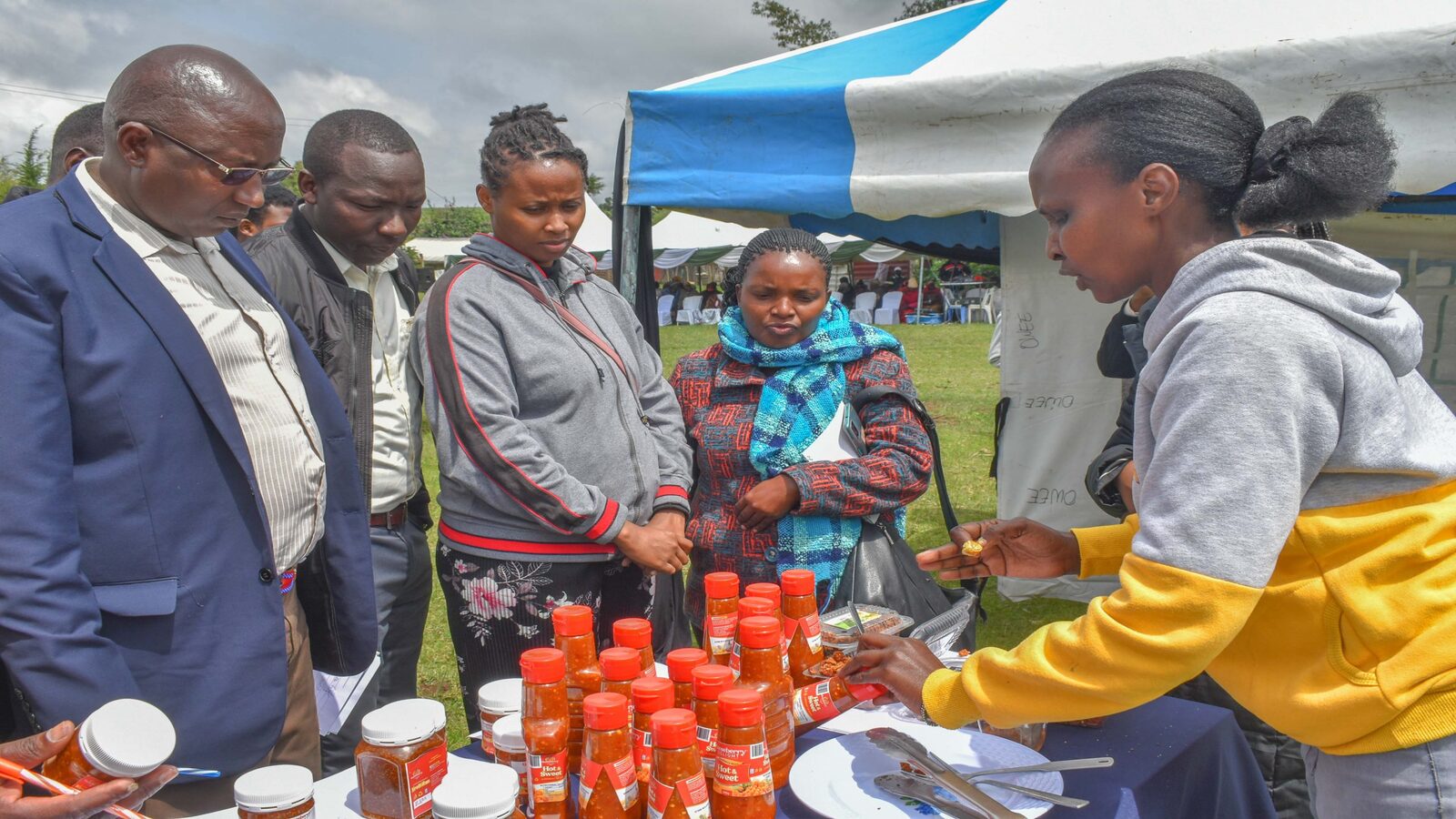
Various exhibitors graced the occasion including
• The Ministry of Agriculture, Livestock and Fisheries, • Koppert Biological Systems (K) Ltd., • Kenya Plant Health Inspectorate Service (KEPHIS), • CKL Africa Ltd, • Greenlife Crop Protection Africa Ltd • Agrico PSA, • FreshCrop Limited, • Livatty Africa Ltd, • The Real IPM Co.(Kenya) Ltd, • SunCulture Kenya Ltd, • Truvets Techno Systems Limited, • Biolevel Limited • Rainbow Agro, Ltd • Gooseberry Delight Ltd, • Royal Seed Delight Ltd
Launch of the Agri Soko Demo Farm
On 19th December 2022 we set up a demo farm at Eor’enk-tok, near Kisiriri in Narok County which makes it easy for the farmers to practically learn on the good and sustainable farm practices, plant and farm management. The farmers were taken through soil testing, land preparation, input application, to planting of certified seeds (Markies variety). This is an ongoing activity and farmers are encouraged to join us and learn more.
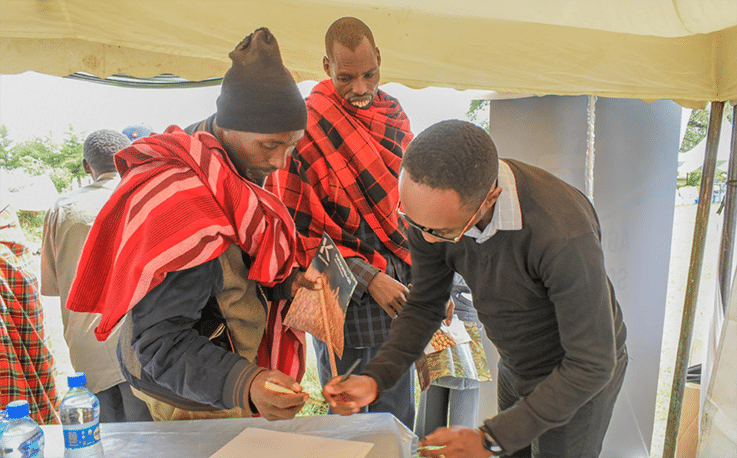
For our Demo Farms, we are honored to partner with;


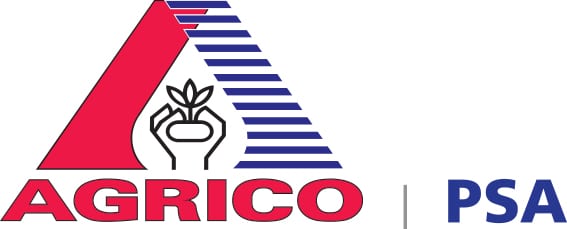



Other Companies who have also supported us



Agri Hubs, Catalyzing Agricultural Innovation and Development
Agri Hubs, Catalyzing Agricultural Innovation and Development
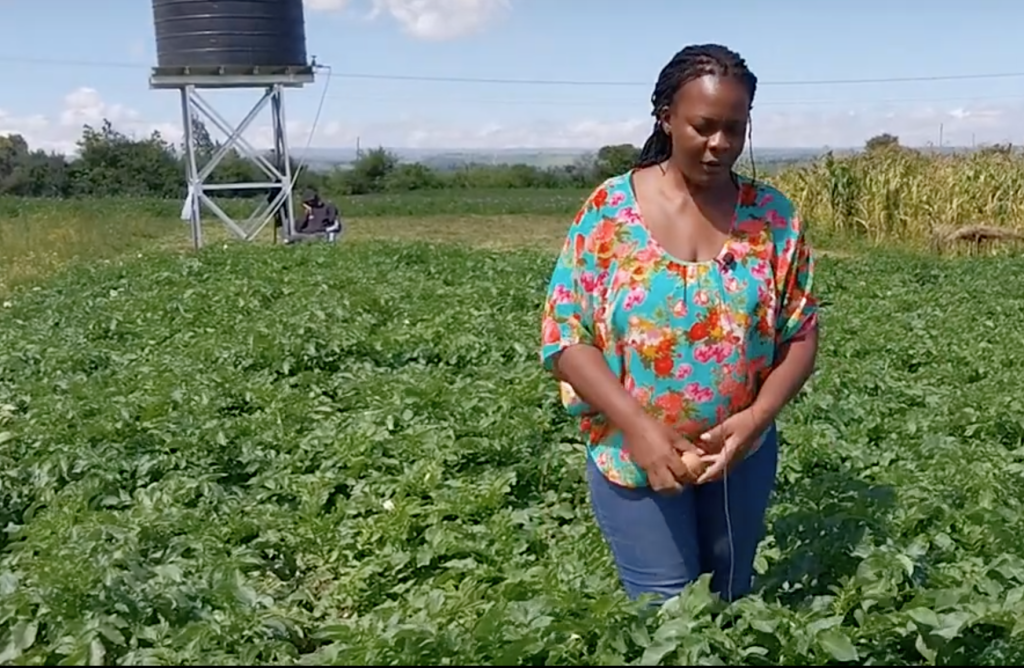
Introduction:
Agri hubs have emerged as transformative models in the agricultural sector, playing a pivotal role in driving innovation, sustainable practices, and economic growth. These dynamic centers bring together farmers, researchers, entrepreneurs, policymakers, and investors to collectively address challenges, share knowledge and foster collaborations. By providing a platform for learning, research, entrepreneurship, and market linkages, agri hubs are transforming the agricultural landscape and paving the way for a more resilient and productive future.
- Knowledge Sharing and Capacity Building: Agri hubs serve as vibrant knowledge-sharing platforms, disseminating information, and best practices to farmers and other stakeholders. They organize workshops, training programs, and seminars to enhance technical knowledge, improve farming techniques, and promote sustainable practices. By connecting farmers with experts, agri hubs empower individuals to adopt innovative approaches, increase productivity, and mitigate risks.
- Research and Development: Innovation and research are at the core of agri hubs. These hubs house research facilities, laboratories, and experimental farms, where scientists, agronomists, and agricultural experts work collaboratively. By conducting research, developing new technologies, and testing novel farming methods, agri hubs drive agricultural progress. The research outcomes lead to the development of high-yielding crop varieties, efficient irrigation systems, precision farming techniques, and sustainable pest management strategies.
- Entrepreneurship and Incubation: Agri hubs foster a vibrant ecosystem for agricultural entrepreneurship. They offer incubation programs, mentorship, and financial support to aspiring agripreneurs and startups. Through access to shared infrastructure, business development services, and market insights, agri hubs enable the successful launch and scaling of innovative agricultural ventures. These initiatives not only drive economic growth but also contribute to job creation and rural development.
- Market Linkages and Value Chain Integration: One of the key functions of agri hubs is to establish robust market linkages. They facilitate connections between farmers, agribusinesses, retailers, and exporters, creating transparent and efficient agricultural value chains. Agri hubs provide market intelligence, assist in quality assurance and certification, and enable access to domestic and international markets. By reducing information gaps, enhancing bargaining power, and ensuring fair prices, agri hubs contribute to improved market opportunities for farmers and increased profitability.
- Policy Advocacy and Sustainability: Agri hubs play an essential role in shaping agricultural policies and advocating for sustainable practices. They collaborate with governments, policymakers, and development agencies to influence policy frameworks that support agricultural innovation, rural development, and environmental sustainability. Agri hubs provide evidence-based recommendations, conduct research on policy issues, and pilot sustainable models that can be scaled up at the national or regional level.
- Community Engagement and Social Impact: Agri hubs are not just physical spaces; they are centers of community engagement and social cohesion. By bringing together farmers, researchers, and other stakeholders, they foster collaboration, peer learning, and collective action. Agri hubs support the formation of farmer cooperatives, women's groups, and youth networks, promoting social inclusion, empowerment, and equitable agricultural development. These initiatives contribute to poverty reduction, gender equality, and the overall well-being of rural communities.
Conclusion: Agri hubs have emerged as vital catalysts for agricultural transformation, providing a conducive environment for collaboration, innovation, and entrepreneurship. By integrating knowledge, research, market linkages, and policy advocacy, agri hubs are instrumental in addressing the challenges faced by farmers and driving sustainable agricultural development. These hubs are not only key drivers of economic growth but also enablers of social inclusion and environmental sustainability. As the world grapples with the need for increased food production and climate resilience, agri hubs will continue to play a critical role in shaping the future of agriculture.
Our Team




Godwin Lake Onduru
Chairman
Hazel Awino
Chief Executive Officer
Eugene Okal
Head of Communication
Grace Awuor
Head of Operations
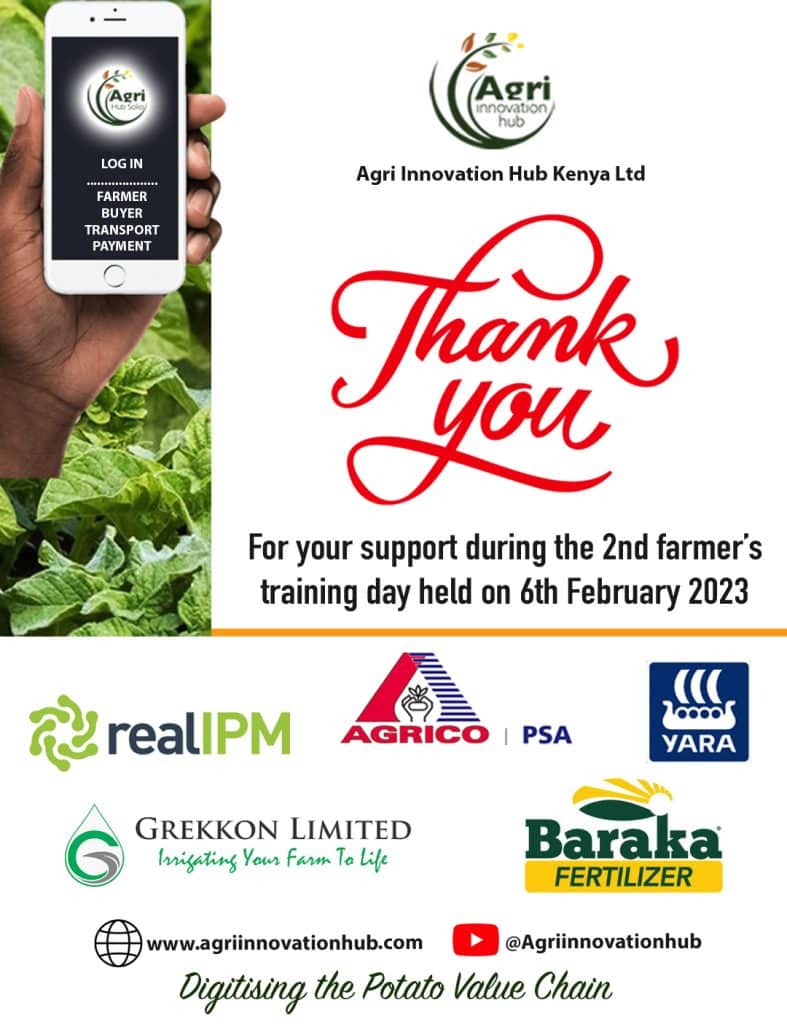
Farmers Field Day Pictorial
Women Rep, Narok County Hon. Rebecca Tonkei being one of our partners during our field day.
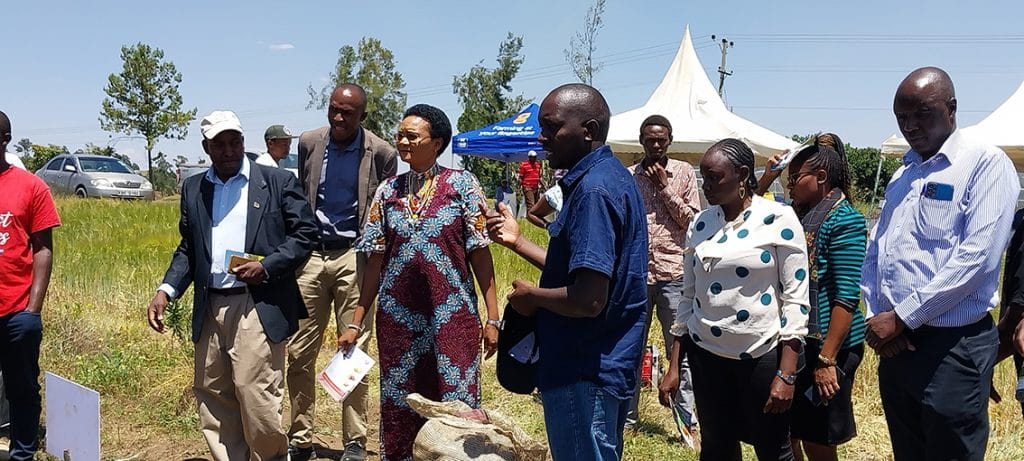
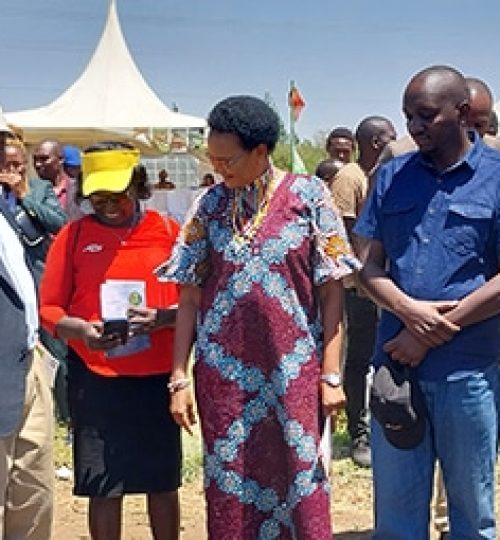
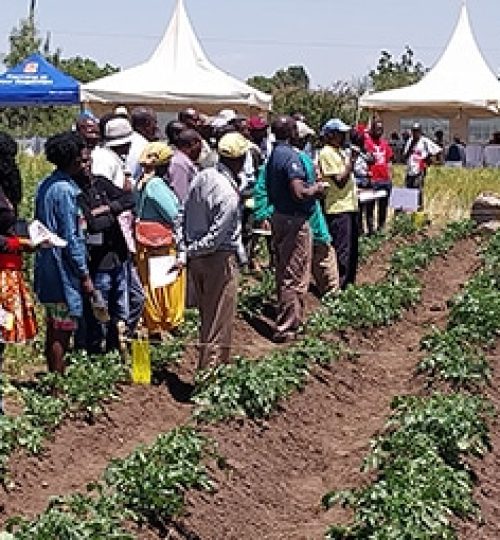
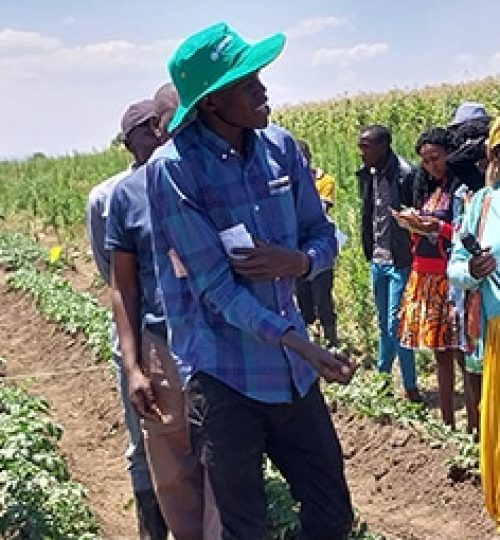
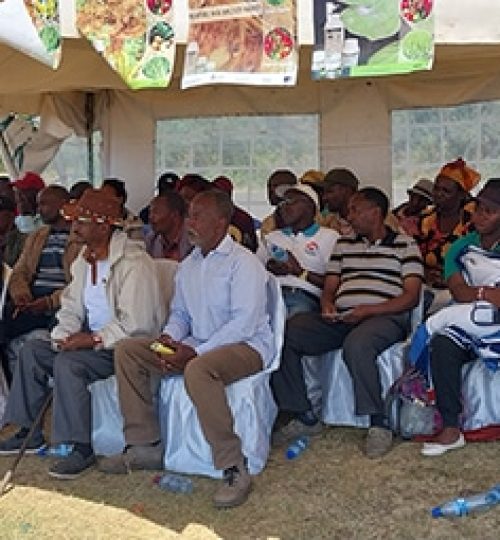
The partnership between Agri Innovation Hub, Agrekko, Real IPM, Jumbo Tanks and Yara Kenya is a program geared towards educating and equipping farmers with the knowledge on good farming practices to enable them mitigate climate change, increase productivity hence their income. The aim of the event is to allow farmers and other stakeholders to interact and share experiences on interventions being applied in the demo farm. Through on-farm and participatory approach (demo farm), the farmers improved on their technical knowledge in readiness to implement the good farming practices. They were enlightened on crop management, certified seeds, farm inputs, markets and the aggregation app (Agri Hub Soko).
It was organized by Agri Innovation Hub, Narok County Woman Rep, Hon. Rebecca Tonkei, CEC Agriculture, Narok County, Local Administration, Farmers, Partners namely Agrico PSA, Real IPM, Yara Kenya, Jumbo Tanks. Agri Innovation Hub sensitized, organized and mobilized farmers, villagers and County agriculture officers through the Ward Extension Officer via their social media platforms and text messaging.
On Monday, 6th February 2023, Agri Innovation Hub held the potato field day for farmers and other stakeholders in the potato value chain. This was facilitated through a demo farm in Eor Enkitok, Narok County. On this day farmers were taken through the process of potato planting. Prior to this day, the farm was prepared and managed under the supervision of the Ward Agriculture Extension Officer based in Kisiriri. As a first step, Crop Nut, a soil testing company based in Limuru took the soil sample for testing which turned out to be favorable. It took two weeks for the results to be ready, Thereafter, land preparation commenced in earnest with a tractor hired to plough the farm and left for two weeks for the weeds and volunteer plants to dry up.
On the material day, the national anthem was played followed by opening prayers. After the opening remarks from Ward Extension Officer Mr. Benard Samoei, the farmers were taken through demonstrations that included certified potato seed variety Markies, depth of hole, row planting, spacing, use of soil activators, use of fertilizer etc. Mr. Mutai from Agrico PSA, who are the certified seed providers, showcased the grade 1 certified seeds in a well aerated sisal netted 50kgs bag. He emphasized the need to check on the KEPHIS label (pink in color) attached to the bag. The label contains vital information such as name of potato variety e.g. Markies, Shangi etc. Seed size e.g. Size 1, Size 2, Mini-tubers, Net weight (the weight should not exceed 50kg) e.g. 20kg, 50kg
Certified seed generation e.g. BASIC, C1G, C2G etc.
Lot number e.g. 17-17344H
Date of sealing 3/23/2020
Label color: Breeder’s
He demonstrated the usual farming method (deep holes) together with the improved method (drawing shallow holes in the loose soil) 4-8cms in depth to illustrate the efficiency of the improved method for farmers to adopt. The recommended row width is 75cms with a pacing of 30-35cms between the tubers
within the row. Farmers were informed that the exact seed planting rate depends on the variety and 800-1000kg needed when using seed Size 1 and 1000-1500kg when using seed Size 2.
Real IPM Narok representative, Mr. Simon Kusimba applied their products, MAZAO Sustan and MAZAO Regain (soil bio activators). Both products reduce soil borne diseases and nematodes and promote root growth. He demonstrated by combining both in recommended measure per pump which is 50mls per 20l of water. He also positioned yellow traps (Real IPM product) for control of white flies. Another of Real IPM products, MAZAO Flourish, is a bio fertilizer for promoting plant growth and yield. It is a starter, vegetative and a fruiting fertilizer. 50mml for light feeders and 100ml for heavy feeders is recommended.
For fertilizer application, the Yara Kenya team led by Mr. Gideon and Rapael advised the Yara nutrition program. For planting Yara Mila Power was used. Other products to be applied include foliar spray, Yara Cropboost, Microp Horticulture and Nitrabor for topdressing.
Mr. Jay from Jumbo Tanks showcased the already erected double layered tank, water tower and ladder. After the application of the above farm inputs, the seeds were covered with soil awaiting germination or sprouting in the next 21 days. Thereafter the farmers gathered together in the main tent for short speeches from the Narok County Woman Rep, Mrs. Tonkei, Agri Innovation Hub CEO, Hazel Awino and the local Administration. Hon. Tonkei requested the local farmers to support the project by growing the variety.
Agri Innovation Hub CEO encouraged the farmers, small scale or large scale, individual or group, to register with Agri Soko to quickly access services provided through the app. With the few remarks, the farmers were free to engage with the partners (exhibitors)o
The 3rd Field Day held on
25th May 2023
Our next field/training day of the season on our calender fell on 25th of May 2023. The impact has been huge with farmers coming as for these trainings from as far as Nyandarua, Thika, Bomet and different parts of Narok County. These are trainings that farmers are ready to do whatever it takes to get the right information to improve productivity and better their lives.
The number of partners is increasing and growing stronger as days go by to the betterment of the farmer. With the Agri Soko app in place, farmers will be able to access the services provided by our partners through the app after registration. Agri Innovation Hub partners include, Real IPM, Agrico PSA, Jumbo Tanks and Yara Kenya.
The aim of the event was to enable farmers to follow up on the crop that had been planted earlier and learn on the crop management needed at this stage. They also interacted and shared their experiences on interventions being applied in the demo farm. The practical lessons on the (demo farm) have been invaluable. They were taught on the markies variety, spacing of the certified seeds, depth of hole, row planting, farm inputs, markets and the aggregation app (Agri Hub Soko). In readiness of all this, a portion of the land was prepared in advance.
Agri Innovation Hub, Narok County Woman Rep, CEC Agriculture, Narok County, Local Administration, Farmers, Partners namely Agrico PSA, Real IPM, Yara Kenya, Jumbo Tanks were all involved in the success of the event. Working with the Ward Agricultural Officer has always made it easy to sensitize, organize and mobilize farmers, villagers. The social platforms of Narok County Woman Rep and Agrico PSA were at hand to help with creating awareness about the event. Text messages were out to those without smart phones, and posters were also pinned in the centers within the ward. Word was also sent out to gatherings e.g. churches, schools and chief’s meetings.
To start us off, the national anthem was played followed by opening prayers. The opening remarks were made by Agri Innovation CEO Hazel Awino. The farmers were ushered into the exhibition booths in groups and taken through trainings of their different products by our partners.
We were honoured by the presence of Mr. Solomon who represented the Narok County Woman Rep at the event. He reiterated the importance of climate smart agriculture in improving farmers livelihood.
